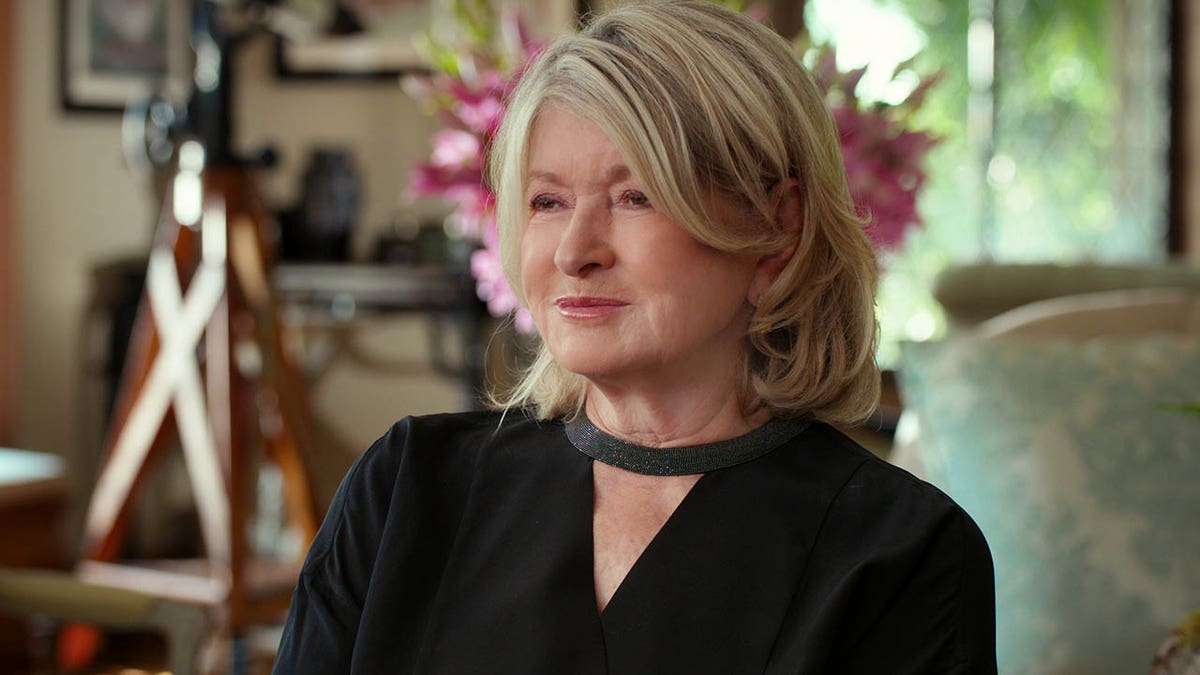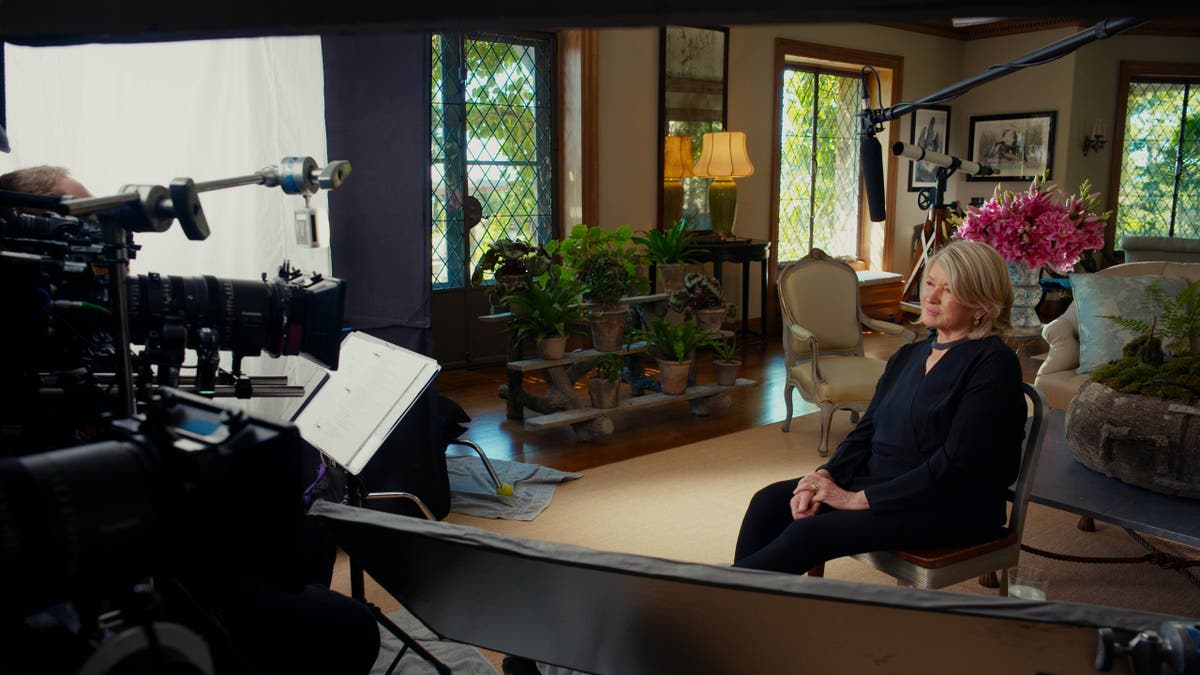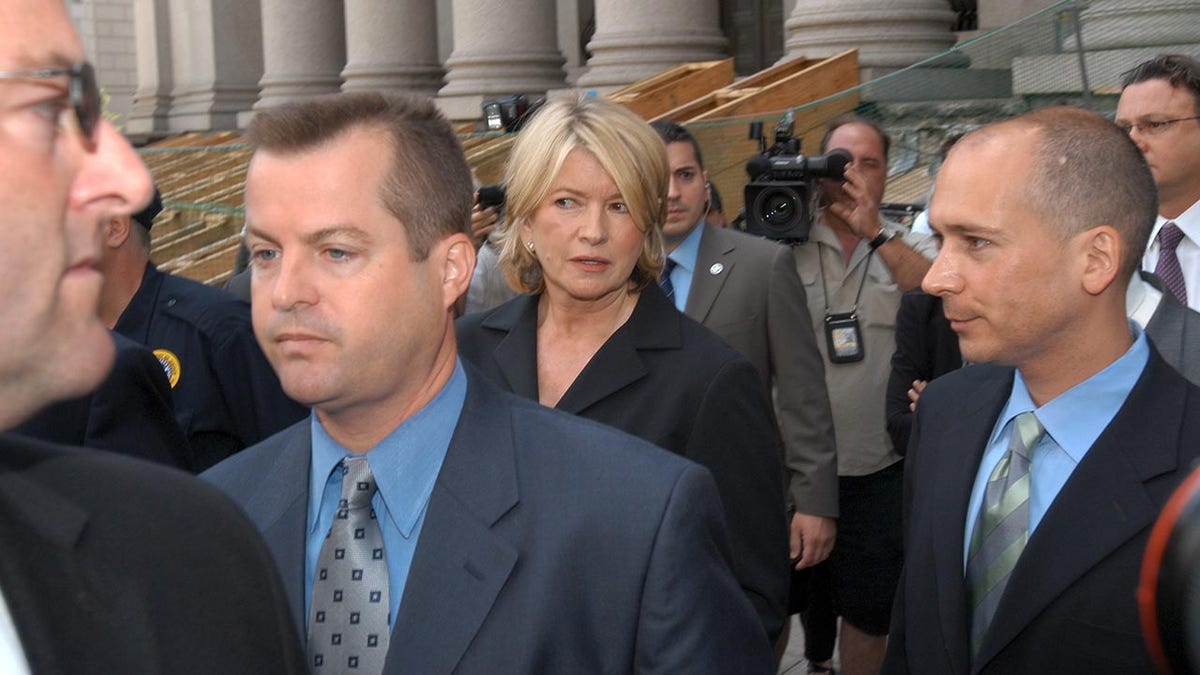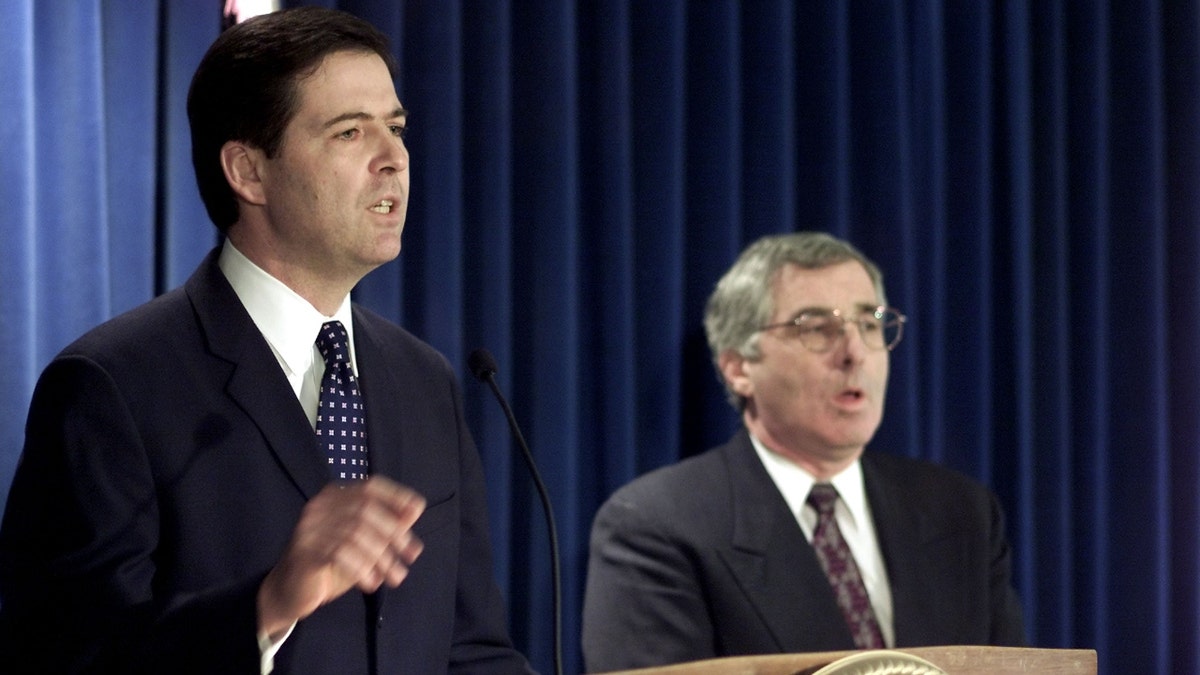In a new documentary delving into the life and legacy of Martha Stewart, the homemaking master takes a swing at former FBI Director James Comey.
Her comments come during a section of the film that focuses on her federal obstruction of justice trial and five-month stint in prison beginning in 2004 — five years after Stewart, 83, became the first self-made female billionaire in 1999.
“It was so horrifying to me that I had to go through that to be a trophy for these idiots in the U.S. Attorney’s office,” she says in the Netflix documentary called “Martha,” which was released on Oct. 30.
Comey, who was behind the now-defunct 2016 Russia investigation into Donald Trump that the former president dubbed a “witch hunt,” was the lead prosecutor who indicted Stewart on charges of obstruction of justice and lying to the FBI in 2003. The charges came in connection with the FBI’s insider trading investigation into her friend’s company, ImClone.

Martha Stewart in “Martha.” (Courtesy of Netflix © 2024)
“I was a trophy — a prominent woman, the first billionaire woman in America,” Stewart says of the case in “Martha.”
“Those prosecutors should have been put in a Cuisinart and turned on high.”
When charges were initially filed against Stewart, then 62, then-U.S. Attorney Comey said during a 2003 news conference that the “case is about lying — lying to the FBI, lying to the SEC and investors.”

Martha Stewart in “Martha.” ( 2024 Martha Stewart/Courtesy of Netflix)
“That is conduct that will not be tolerated. Martha Stewart is being prosecuted not because of who she is, but what she did,” he said at the time.
Meanwhile, Stewart’s attorney, the late Robert Morvillo, questioned whether the charges were filed “for publicity purposes or because Martha is a celebrity” in a statement after the indictment was filed.

Martha Stewart was sentenced to five months in prison for lying to investigators about a stock sale that brought her relatively little financial gain but cost her reputation heavily. (Brian ZAK/Gamma-Rapho via Getty Images)
“Is it because she is a woman who has successfully competed in a man’s business world by virtue of her talent, hard work and demanding standards?” Morvillo asked. Stewart had made her fortune off her media company, Martha Stewart Living Omnimedia Inc., which she founded in 1997.
“I always personally thought they were making an example of her because of her celebrity.”
Craig Greening, managing partner of Greening Law Group and a criminal defense attorney, told Fox News Digital that the “Southern District of New York is notorious for prosecuting high-profile individuals and leveraging their cases to send a broader message.”

Waksal admitted he avoided paying $1.2 million in taxes on nine paintings he purchased. (Adam Rountree/Getty Images)
“Martha Stewart’s case fits this pattern,” Greening said. “The prosecution’s pivot to obstruction of justice when insider trading charges couldn’t stick highlights a strategy often used to hold public figures accountable in highly visible ways.”
Greening added that the charges filed against Stewart “were valid given the evidence.”
“However, the question of proportionality remains. Stewart served five months in prison and five months under home confinement—not insignificant penalties for a 1001 violation,” he explained. “One could argue that her punishment felt more about creating an example than ensuring justice, which fuels the debate over fairness in her case.”
Greening said it’s a common tactic for the government to “shift to obstruction-of-justice” charges when “the primary charge is difficult to prove.”
“In Stewart’s case, this approach allowed the prosecution to maintain accountability, but it also underscores the role of discretion in targeting public figures,” Greening said.
In an Oct. 31 interview with The New York Times, following the official premiere of “Martha” on Netflix, the media mogul said she enjoyed the first half of the film but described the second half of as “a bit lazy.” Her trial, she said, was “not that important.”

FBI Director James Comey testifies before a House Oversight and Government Reform Committee on the “Oversight of the State Department” in Washington on July 7, 2016. (Reuters/Gary Cameron)
“The trial and the actual incarceration was less than two years out of an 83-year life,” Stewart told the Times. “I considered it a vacation, to tell you the truth.”
Greening believes Stewart’s “anger is understandable.”
“Stewart felt she was unfairly targeted as a ‘trophy’ for prosecutors, and her claims align with broader critiques of selective prosecution,” he said. “Being a self-made billionaire and a woman in power likely magnified the scrutiny she faced. The severity of her punishment also supports her frustration—this case was about making a statement as much as it was about justice.”

Martha Steward in “Martha.” (Courtesy of Netflix © 2024)
“Martha” Director R.J. Cutler described Stewart in a statement prior to the film’s release as “a personification of her times and such an American success story.”
“It was clear to me that she was thinking about telling her life story in some form, and it wasn’t hard to imagine that there was a life-and-times movie to be made that explored why Martha has been such a significant cultural and business figure for so many decades in so many ways,” Cutler told Netflix. “I started reading about Martha and the more I did, the more it became clear to me that she was a complex person filled with so many conflicts and contradictions.”
He went on to describe Stewart as a “visionary” who “understood the lack of barriers between different kinds of content before others did; she understood the power of the personal brand before others did.”


